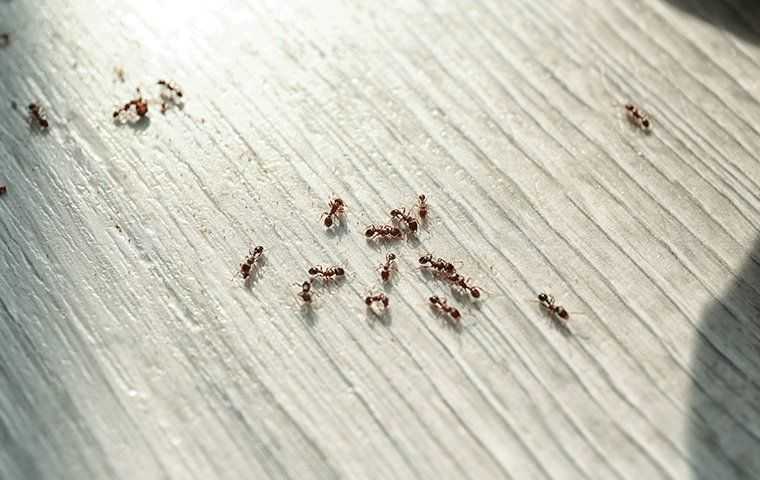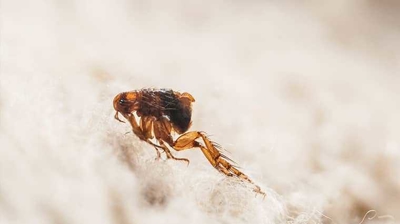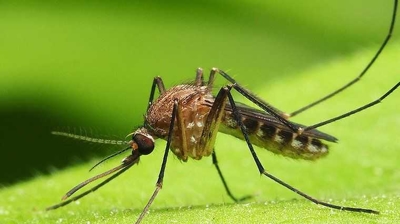
Winning The Battle Against Ants In Orange County, CA: Expert Advice On Effective Control
In this comprehensive guide, we will delve into the intricate world of ant infestations and provide valuable insights on effectively managing them. Ants, with their well-organized social hierarchies and complex communication systems, can be both fascinating and troublesome house guests.
Our journey begins with a close look at ant behavior, exploring their social dynamics and communication methods. Understanding the potential dangers that ants pose within households is crucial as we uncover the risks they bring and the problems they can create. Moreover, we shed light on the common mistakes in ant prevention that homeowners often make, offering practical solutions to avoid these pitfalls.
If you're seeking the ultimate key to successful ant control, look no further—our experts here at The Pest Group are ready to provide tailored advice to address your specific concerns regarding ant control in Orange County, CA. Join us as we equip you with the knowledge and strategies to reclaim your home from these persistent pests.
Ant Behavior: Social Hierarchy And Communication

Ants, often admired for their complex societies and collective behaviors, showcase a remarkable social hierarchy and communication system that underpins their successful survival and dominance. Within an ant colony, individuals separate into distinct castes, each with specialized roles that contribute to the overall functioning of the community.
The queen holds a pivotal role as the reproductive powerhouse, responsible for laying eggs that ensure the colony's growth. Workers, the largest caste, handle various tasks such as foraging for food, building and maintaining the nest, and caring for the young. Soldiers, though less numerous, are equipped with defensive traits to protect the colony from threats.
Orchestrating the division of labor is the exchange of chemical signals called pheromones. Ants secrete pheromones to communicate a range of information, including the discovery of food sources, the presence of danger, and even the identification of nestmates. These chemical cues create a detailed web of information that guides the collective behavior of the colony. For instance, when a forager locates a food source, it leaves a trail of pheromones that guides other workers to the same location, efficiently exploiting resources. Similarly, pheromones alert the colony to potential threats, triggering coordinated responses to safeguard the nest.
Communication extends beyond chemical signals; ants also employ tactile and auditory cues. Ants convey information about their intentions and needs through gentle touches and vibrations. In some species, stridulation, the production of sound by rubbing body parts together, serves as an additional means of communication. This multimodal communication system allows ants to adapt and respond rapidly to changing conditions, reinforcing their collective strength.
By delving into the intricacies of ant behavior, we gain a deeper appreciation for their extraordinary ability to cooperate and adapt. However, these very traits that contribute to their success can also make ant infestations challenging to manage.
To summarize, in order to effectively control ants in your Orange County, CA home, you have to ask yourself, "How do ant colonies work?" Understanding their behavior and communication mechanisms is essential, enabling you to disrupt their activities and implement targeted control strategies.
Ant Dangers: Understanding The Risks Of Ants In The House
Understanding the potential risks ants pose when they invade your home is crucial for effective pest management. While ants might seem harmless at first glance, their presence can lead to various problems impacting your property and well-being, such as:
- Food Contamination: Ants are notorious for their scavenging behavior, and once they find a source of food in your home, they can quickly contaminate it. They carry bacteria, pathogens, and other microorganisms on their bodies, which can transfer to your food and surfaces, posing a health risk to you and your family.
- Structural Damage: Some ant species, like carpenter ants, can cause structural damage to your home. These ants tunnel through wood to create nests, potentially weakening the structural integrity of wooden components such as beams, walls, and furniture.
- Electrical Issues: Certain ant species are attracted to electrical wiring due to the heat it generates. They might create nests around electrical outlets or within walls, which can lead to short circuits, malfunctions, and even fire hazards.
- Garden and Yard Damage: Outdoor ant colonies can cause damage to your garden, lawn, and plants. They may disrupt the soil, damage roots, and protect pests like aphids, which feed on plants and secrete a sticky substance that attracts other pests.
- Allergies and Stings: Some people are allergic to ant stings, and their stings can cause severe reactions. Fire ants, for example, are known for their painful and potent stings that can lead to itching, swelling, and allergic reactions in sensitive individuals.
- Disruption of Ecosystems: Invasive ant species can harm local ecosystems by outcompeting native species for resources. They might disrupt the natural balance of plants and animals, leading to ecological consequences.
- Unpleasant Aesthetics: Ant trails, nests, and swarms can be unsightly and distressing to homeowners, affecting the overall aesthetics of your living spaces.
- Recurring Infestations: If not properly controlled, ant infestations can become recurrent problems, making it challenging to completely eradicate them from your home.
To mitigate these risks, address ant infestations promptly and effectively. Prevention measures such as keeping your home clean, sealing entry points, and removing food sources can greatly reduce the likelihood of infestations.
If you notice signs of ant activity, it's advisable to seek professional assistance to identify the ant species, their nesting locations, and the most appropriate control methods. By understanding the potential dangers associated with ants in your house, you can take proactive steps to get rid of ants,safeguarding your home, health, and peace of mind.
Ant Prevention Mistakes To Avoid: Common Pitfalls And Solutions
Preventing ant infestations requires a proactive approach, but it's important to avoid common pitfalls that can inadvertently attract or sustain these pests. Let's explore some prevalent mistakes and effective ant prevention tips to mitigate them.
Neglecting Cleaning Practices
- Mistake: Failing to maintain a clean environment can leave crumbs, spills, and food residues that attract ants.
- Solution: Regularly clean countertops, floors, and other surfaces. Wipe down spills promptly, sweep floors, and vacuum carpets to eliminate potential food sources.
Improper Food Storage
- Mistake: Storing food in unsealed containers or leaving pet food out overnight can attract ants.
- Solution: Store your food in airtight containers, including pet food. Consider using sealed containers for pantry items to prevent ant access.
Ignoring Moisture Issues
- Mistake: Damp areas, leaky pipes, and standing water can create favorable conditions for certain ant species.
- Solution: Fix leaks promptly, ensure proper drainage, and address areas of excess moisture. This step reduces the attraction of ants seeking water sources.
Overlooking Entry Points
- Mistake: Gaps in doors, windows, and walls allow ants to infiltrate your home.
- Solution: Seal up cracks and crevices using caulk and weatherstripping. Install door sweeps to prevent ants from entering under doors.
Incomplete Outdoor Maintenance
- Mistake: Neglecting yard maintenance can lead to ant colonies establishing themselves close to your home.
- Solution: Trim shrubs and trees away from your home, maintain a clear perimeter, and eliminate debris that could serve as nesting sites.
Ignoring Pet Waste
- Mistake: Leaving pet waste in the yard can attract ants looking for protein sources.
- Solution: Clean pet waste promptly and regularly to eliminate potential ant attractions.
Using Ineffective DIY Remedies
- Mistake: Relying on DIY methods that have limited effectiveness might not fully address the infestation.
- Solution: If ant infestations persist, seek professional pest control services. Experts can accurately identify the ant species and implement tailored solutions.
Not Addressing Outdoor Colonies
- Mistake: Focusing solely on indoor ant issues without addressing outdoor colonies can lead to recurring problems.
- Solution: Identify and treat outdoor ant colonies to prevent them from entering your home. Professional ant pest control can help locate and eliminate these nests.
Inadequate Garbage Management
- Mistake: Leaving trash cans unsealed or neglecting to take out the trash regularly can attract ants.
- Solution: Use sealed garbage bins with tight-fitting lids. Empty trash cans frequently, especially those containing food scraps.
Lack of Regular Inspections
- Mistake: Ignoring routine inspections can result in unnoticed ant activities until they become a major problem.
- Solution: Regularly inspect your home's interior and exterior for signs of ant activity. Promptly address any issues you identify.
By avoiding these common ant prevention mistakes and implementing effective solutions, you can significantly reduce the likelihood of ant infestations in your home. Remember that proactive measures, coupled with professional pest control guidance when needed, are key to successful ant management. Seek professional ant control in Orange County, CA today.
The Key To Successful Ant Control: Contact Us Today!
Knowledge is your most potent weapon in the battle against ants in Orange County, CA. By delving into the intricacies of ant behavior, understanding the risks they pose, and learning from common prevention mistakes, you'll have the tools to protect your home and family from these persistent pests. However, look no further than our expert team at The PEST Group for the ultimate and most comprehensive home pest control solution.
At The Pest Group, our dedicated team specializes in eradicating pest problems in Orange County, CA, offering tailored advice and solutions addressing your concerns. We're committed to providing the most effective and efficient pest control measures, from identifying the ant species and their nesting sites to implementing targeted strategies.
Don't let ants dictate the terms in your home—contact us today to experience firsthand how The PEST Group can deliver complete ant removal, ensuring your peace of mind.
What Our Customers Are Saying
-
“No complaints from me I would use them again when needed.- Chuck C.
” -
“Luis and his crew did a professional job from start to finish”- Manuel R.
-
“From start to finish, the process was just amazing.”- Ellen C.
-
“I was treated like a king.”- Tod B.
-
“Will never user another Pest Control service.”- August O.
-
“They called me so I could set my alarm and close my gates, and even brought in my trash.”- Robert M.
-
“Quick, efficient, competent and made you feel comfortable about leaving your home in their hands”- Darren S.
-
“Pest group has done several of our rental properties along with our own home. I have several plants and bushes next to the building and they went above and beyond to protect them.”- Wendy J.





